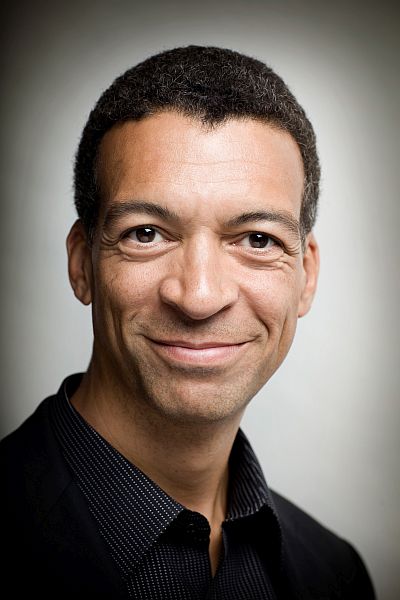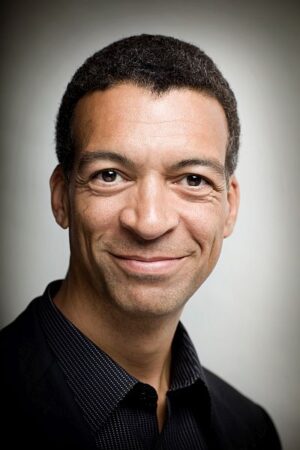 United Kingdom Chipping Campden Music Festival [2] – Beethoven and Schubert: Roderick Williams (baritone), Susie Allan (piano). St. James’ Church, Chipping Campden, 19.5.2019. (JQ)
United Kingdom Chipping Campden Music Festival [2] – Beethoven and Schubert: Roderick Williams (baritone), Susie Allan (piano). St. James’ Church, Chipping Campden, 19.5.2019. (JQ)

Beethoven – An die ferne Geliebte Op.98
Schubert – Schwanengesang D957
The last two Chipping Campden Music Festivals have included recitals in which the great Schubert song cycles have been performed. Unfortunately, I missed Christopher Maltman’s account of Winterreise last year but I did experience Roderick Williams and Iain Burnside in Die schöne Müllerin in 2017 (review). Tonight, Williams returned to conclude the festival’s Schubert project, this time in partnership with Susie Allan.
In an elegant short introduction to the recital, Williams told us that in many ways An die ferne Geliebte works well in a programme with these Schubert songs. However, as he’s developed this programme, he’s come to appreciate more fully the differences between the two sets of songs. One obvious one, of course, is that the Beethoven is a true cycle, which the Schubert is not. Williams also pointed out that the poems that Beethoven set are thoughts expressed by one person – a lover who is standing on a hill – whereas there’s no single protagonist in the Schubert and the poems present us with many different scenarios. But I thought the most interesting point that he made was that in Beethoven’s songs the vocal line is very simple and the chief musical interest lies in the piano part. Maybe it was this comment that made me focus more than usual on the piano part during the performance that followed. However, I suspect that the real reason was the expert and insightful playing of Susie Allan.
Among the many musical innovations attributable to Beethoven is the composition of the first true song cycle. An die ferne Geliebte (To the distant beloved), composed in 1815-16. In this set of six songs Beethoven set poems, possibly written at his behest, by Alois Jeitteles (1794-1858). Jeitteles was a medical student at the time – he went on to qualify as a doctor – and also a poet and journalist. The poems, which play without a break in Beethoven’s settings, pursue the theme of love experienced through the beauties of nature. Right from the outset, in ‘Auf dem Hügel sitz ich spähend’, I admired Williams’ fine legato line. Just as noteworthy was the way in which Susie Allan weighted the piano part and made the rests count for much. In the ‘Wo die Berge so blau’ I was particularly taken with the soft singing and playing in the middle of the song. ‘Leichte Segler in den Höhen’ was delivered deftly, almost like a scherzo. Each of the three remaining songs was expertly and convincingly done also, and in each case the bridge passages between the songs were played most imaginatively by Ms Allan. When the musical material of the first song was revisited, albeit with very different treatment, in the concluding song, ‘Nimm sie hin denn, diese Lieder’ one had a proper sense of An die ferne Geliebte coming full circle, as the true song cycle it is.
Williams and Allan had a short break of no more than five minutes before returning to perform Schubert for us. Unlike An die ferne Geliebte, Schwanengesang is not a song cycle – though people sometimes speak of Schubert’s ‘three great song cycles’. The set of fourteen songs was assembled in 1829, the year after Schubert’s death, by his publisher, Tobias Haslinger. The first seven songs are settings of poems by Ludwig Rellstab (1799-1860). These are followed in Haslinger’s compilation by six songs to poems by Heinrich Heine (1799-1856). Haslinger completed the set by adding a final setting, Die Taubenpost, which has words by Johann Gabriel Seidl (1804-1875). Roderick Williams made a very clear division of Schwanengesang into two groups: he and Ms Allan left the stage for a couple of minutes after the Rellstab group.
‘Liebesbotschaft’ benefitted from Williams’ light, easy delivery. Beneath the constantly-moving right-hand in the piano part, Susie Allan weighted the bass part in the left hand in an ideal fashion. Introduced by solemn, mysterious piano chords, ‘Kriegers Ahnung’ received a performance that was, quite simply, superb. Williams deployed a great variety of vocal colouring to telling effect and drew the listener in strongly. Later in the song, the top register of his voice was a joy to hear. I relished the eagerness which both musicians brought to ‘Frühlingssehnsucht’; the questions at the end of each stanza were perfectly placed. The famous ‘Ständchen’ was delightfully done. Williams’ bittersweet way with the vocal line was ideal and I admired equally the subtle rubato deployed by Susie Allan. ‘Aufenthalt’ was intense and dramatic while ‘In der Ferne’ was, if anything, even more intensely imagined by both artists. The final Rellstab song, ‘Abschied’ was distinguished by very light singing and playing. Williams articulated the text marvellously. I was accompanied by someone who had been lucky enough to see him as Papageno at the Royal Opera House in 2017 and remarked that his delivery of this song put her in mind of his Papageno: he could almost have been flirting with the audience.
Fine though the Rellstab songs are, the Heine settings are on a different, deeper level. The poetry is better and it drew from Schubert music of genius. Williams gave a big, commanding account of ‘Der Atlas’ and followed that with inwardness and regret in ‘Ihr Bild’. Just recently, I listened for review purposes to a recording of Schwanengesang by a bass singer whose cavernous voice was, I felt, badly suited to many of the songs: ‘Das Fischermädchen’ was a case in point. On that recording it sounded as if the poet/singer was a kindly old gent. Williams, by contrast, was ideally cast. His much lighter baritone enabled him effortlessly to suggest the suave, eager young man who Heine surely envisioned. There was a delicious rhythmic spring in this song.
Both musicians brought genuine tension to ‘Die Stadt’. Schubert’s piano writing is so advanced here, with the dark, ominous bass offset by the spooky swirls of notes in the right hand. Ms Allan brought all this vividly to life while Williams deliberately drained his voice of colour to add to the fraught atmosphere. Though Schubert never actually saw the sea, his music in ‘Am Meer’ is wonderfully suggestive of the vast horizons of the ocean as seen from the shore. That was definitely conveyed tonight. The final Heine setting is the remarkable ‘Der Doppelgänger’. Here, rightly, lay the climax of the entire evening in a gripping performance of shattering intensity from both musicians. After a short pause, ‘Der Taubenpost’ was given as a ‘quasi-encore’. This is, in reality, by far the best way to present this song because it doesn’t otherwise ‘fit’ with the other songs. The performance was a delight. Williams’ delivery was charming and witty; he really drew the audience into his confidence as he extolled the pigeon as a messenger of love. This, for me, was another Papageno moment.
It was Roderick Williams who, in his opening remarks, had told us that ‘Der Taubenpost’ would be a ‘quasi-encore’. Happily, that did not preclude a genuine encore and what better choice could there have been than An die Musik. This little gem was given simply and sincerely, art concealing art. It was an ideal close to a memorable recital.
Roderick Williams was on superb form this evening. His singing per se was marvellous and, as usual with this very thoughtful artist, there was a marvellous identification with and presentation of the words. Just recently, a friend of mine, a highly experienced musician, remarked to me that although Roderick Williams regularly appears with some very fine pianists, demonstrating excellent musical partnerships with them all, there is an added something when his recital partner is Susie Allan. I strongly agree with that view. There seems to be a special musical chemistry between these two perceptive artists that was very much in evidence. I was thrilled to read in Roderick Williams’ programme biography that among future recording projects will be the two Schubert cycles and Schwanengesang for the Chandos label. That’s a mouth-watering prospect to which I look forward with keen anticipation.
John Quinn
